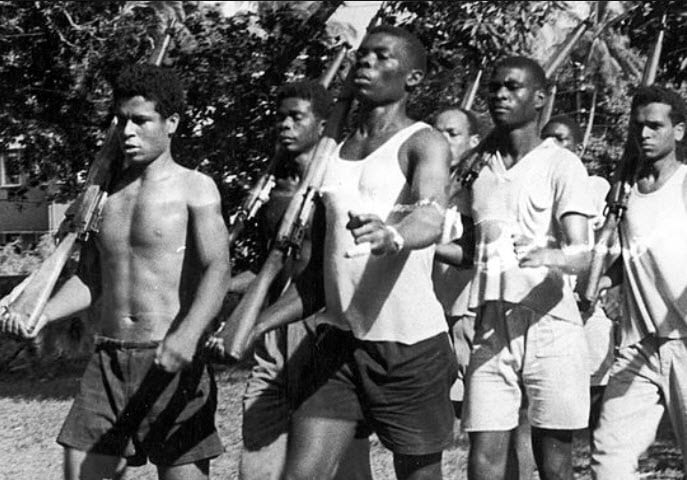Impact of Zanzibar Revolution and the Aftermath
Background
The Zanzibar Revolution occurred in 1964, prompting the oust of the Sultan of Zanzibar by his Arab government and the African progressives. Zanzibar was a multi-ethnic country with a large number of islands off the east coast of Tanganyika which was granted British independence in 1963.
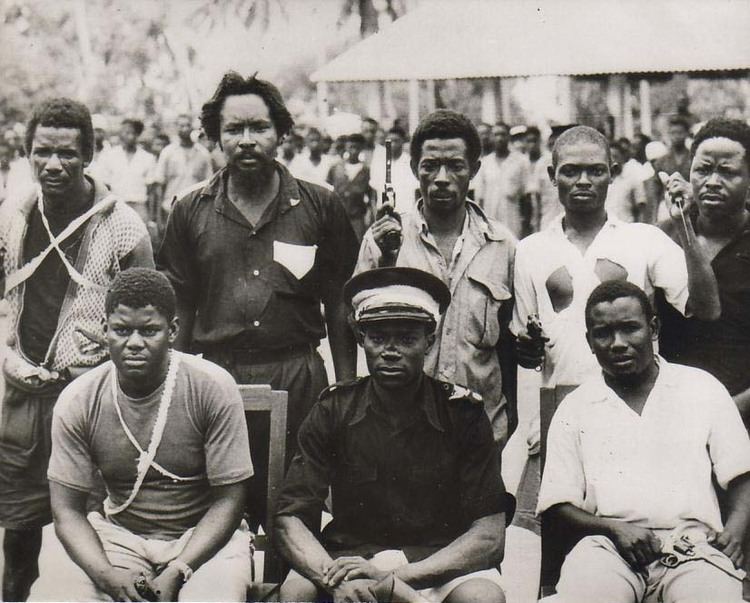
In a series of pre-independence parliamentary elections, a few Arabs managed to retain the power inherited from the previous Zanzibar regime which made the country one of their administrative territories outside Oman. Dissatisfied by their lack of impact in parliament regardless of winning 54 percent of the vote in the July 1963 races, the primary African Afro-Shirazi Party (ASP) joined the left-wing Umma Party, and early on the morning of the 12th of January 1964, ASP member John Okello mobilized approximately 600-800 revolutionaries on the main island of Unguja (Zanzibar Island). After fighting the country’s police force and confiscating their weapons, they arrived in Zanzibar City where they overthrew the Sultan and his government. Then came anti-Arab rallies and South Asian nationals; The death toll is unknown, with estimates starting at several hundred to 20,000. ASP moderate political leader Abeid Karume became the country’s new president and head of state, and positions of power were given to public party leaders.
One major impact of Zanzibar revolution was the appearance of a coalition of new governments and communists which did cast doubt on Western governments. While the British influence still had a grip Zanzibar, their government attempted to make a couple of meditations on the matter. However, the communist government in question never appeared, and because British and American citizens were already taken out of the country safely, these programs did not take effect. At the same time, the Communist authorities of East Germany and the Soviet Union, as well as the Soviet opposition to the People’s Republic of China, established friendly contacts with the new government by recognizing the country through advisers. Karume managed to negotiate a coalition between Zanzibar and Tanganyika to form a new nation of Tanzania, an act condemned by the then current media as an attempt to curb Zanzibar’s communist distortions. After 200 years of Zanzibar being under Arab control it was finally over, and as a result people of Zanzibar celebrates the revolution every year together with the state holiday.
Revolution – How it Actually Happened
At around 3:00 am on January 12, 1964, about 600-800 African rebels with very weak and crude weapons, assisted by some dismissed police officers, attacked Unguja police stations, both police depots, and a radio station. The attackers were unarmed, with only spears, knives, swords, and tire irons, lucky enough to be numerous and surprise attacks. A group of new Arab police officers had not received any training and, despite responding to an attack by an unstable squad, they soon lost. Okello himself led the attack on police headquarters at Ziwani, which was also the largest arms depot on the island. Some of the rebels were shot, but the police were overwhelmed, with Okello motivating his colleagues with his bravery by attacking the police guard and snatched his rifle after wrestling with him, then used it to stab the policeman to death. Armed with hundreds of looted rifles, SMG rifles and Bren rifles, the rebels took control of strategic buildings in the Zanzibar capital. At about 7:00 a.m., Okello announced for the first time on a Zanzibar radio station whereby his rebels had already abducted two hours ago, urging Africans to stand up and overthrow the “imperialists”. At the time, Okello introduced himself simply as “Commander-in-Chief”, which sparked widespread speculation in Zanzibar about his identity and people wondering about this strange revolutionary man who spoke his Swahili language with a deep Acholi accent, which seemed strange in Zanzibar.
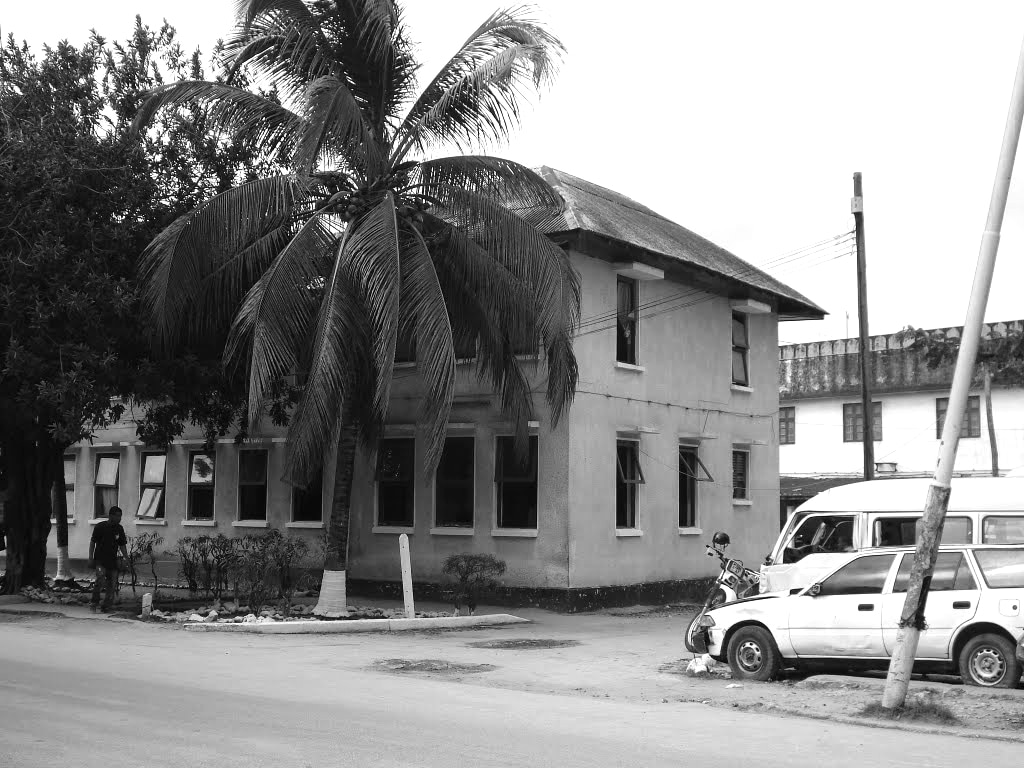
Within six hours of the eruption, the city’s telegraph office and important government buildings were under the control of the revolutionaries, and the only airport on the island was hijacked at 2:18 p.m. In the countryside, clashes broke out between the Manga, the so-called rural Arabs, and the Africans. The Manga had armed themselves with their hunting rifles, and as soon as the seized weapons from the police stations reached the rebels in the villages, the Manga were gone. In Stone Town, fierce opposition erupted at the Malindi police station, where under the command of Police Commissioner J.M. Sullivan (the British police who stayed until he was hired by the local police to take his place), all the rebel attacks were pushed back, notably because the rebels decided to retreat all the time they were under attack. Sullivan surrendered to the Malindi station in the afternoon after running out of bullets, but he ensured to get his whole squad (not a single policeman was killed or wounded) down to Stonetown docks and board them into boats that took them to the ship “Salama” out of Zanzibar. Everywhere in Stone Town, shops and houses owned by Arabs and South Asians were looted while many Arab and South Asian women were raped. The Sultan, along with Prime Minister Muhammad Shamte Hamadi and members of the cabinet, fled the island using the luxury royal Seyyid Khalifa, meanwhile the Sultan’s palace and other properties were captured by the revolutionary government. At least 80 people were killed and 200 others injured, most of them Arabs, following 12 hours of fighting on the city streets. Sixty-one U.S. citizens, including 16 men working for the NASA satellite tracking station, sought refuge at an English Club in Zanzibar City, and four U.S. correspondents were detained by the island’s new government.
Unaware that Okello had issued an order not to kill the whites, Americans living in the Stone Town fled to the English Club, where it was a
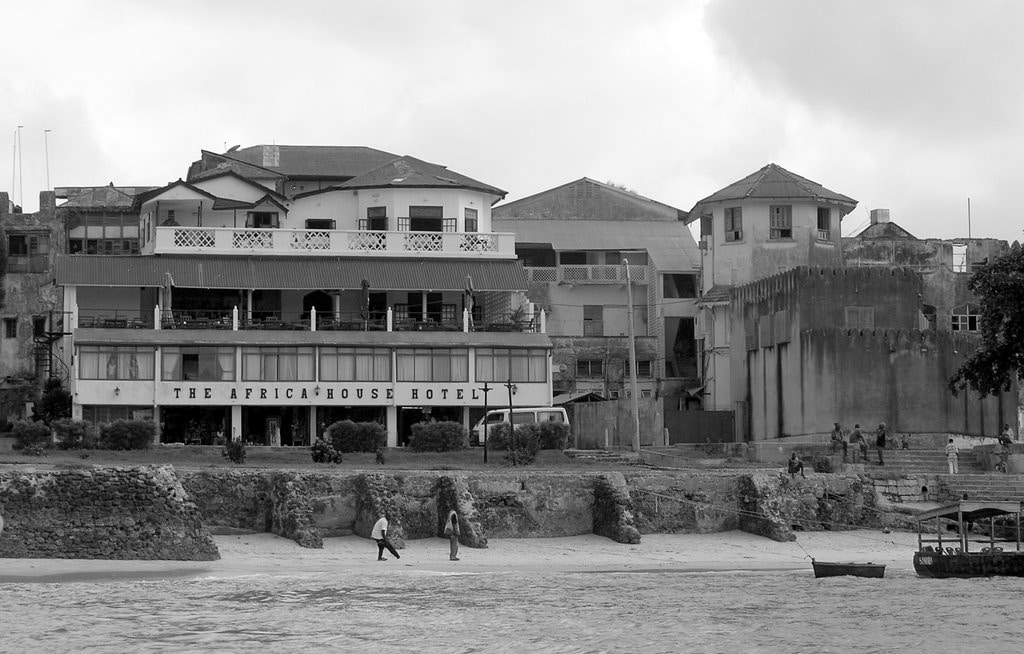
place of existing the country. Those traveling in a motorcade to the English Club were shocked to see bodies of Arab men lying on the streets of Stone Town with their forearms and testicles cut off and stuffed in their mouths. As part of Okello’s carefully planned plans which played had a huge impact on Zanzibar revolution, across the island, African gangs armed with knives, spears and swords aimed at killing all the Arabs and South Asians wherever they encounter them. U.S. diplomat Don Petterson expressed his fears as he watched from his home seeing a group of African men invading an Arab house, beheading him in public with machetes, followed by shouts from inside his house where his wife and three children were raped and killed, and a similar incident took place in the next Arab house, and repeated ten times in other Arab houses. After taking control of Stone Town on the first day, the rebels continued to fight the Manga for control of the villages for at least two days later with all Arab families getting killed after their settlements were invaded.
According to the official history of Zanzibar, the coup was planned and led by ASP leader Abeid Amani Karume. That said, when all this was occurring while Karume was away to the mainland, the same location where Abdulrahman Mohammed Babu, the leader of the banned Umma Party was. The ASP secretary of the Pemba branch, a Ugandan-born and retired police officer, John Okello, shipped Karume to the mainland to ensure his safety. Okello arrived in Zanzibar from Kenya in 1959, claiming to have been the commander-in-chief of the Kenyan rebels during the Mau Mau uprising even though he had no history of being in the military. He maintained that he heard a voice ordering him, as a Christian, to liberate the people of Zanzibar from Muslim Arabs, even though the Zanzibaris themselves were Muslims and it was Okello who led the revolutionaries — especially the unemployed members of the Afro-Shirazi Youth Union – on 12 January . One analyst has suggested that it was probably Okello, and the Youth League, who planned the coup. It seems that there have been three separate coup d’état, led by Karume, Babu and Okello, but it was Okello’s plan that was the most sophisticated and he was the one who struck down the Sultan’s rule. Okello was not well known in Zanzibar, and the government was more concerned with pursuing the ASP and the Umma Party rather than an unknown and illiterate man who was a house painter by a low-level union official. Okello was not well known around the world during the coup, and MI5 reported to Whitehall that he was a retired police officer who fought with Mau Mau in Kenya and had been trained in Cuba on revolutionary tactics and violence. Okello himself in a press conference a few days later denied ever being in Cuba or China, explaining that he was a Christian whose motto was “You can learn everything in the Bible”.
During the coup, there was a spate of violence against South Asian and Arab communities with thousands of women being raped by Okello’s
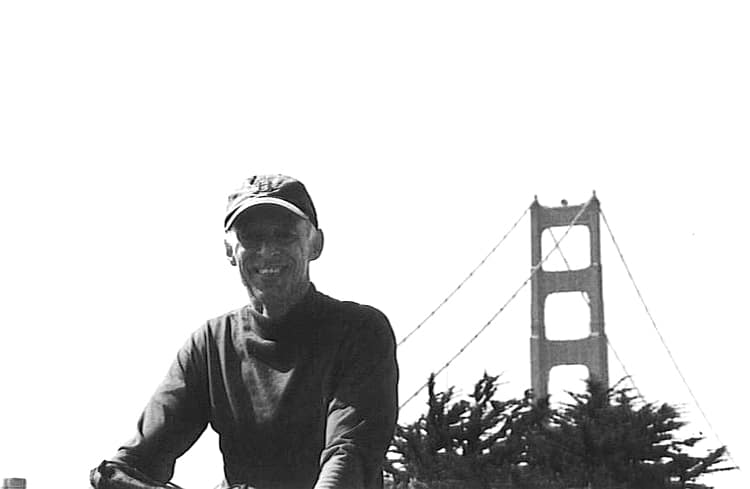
rebels, mass looting and killing of Arabs on the island. U.S. diplomat Don Petterson described the massacre of Arabs by Africans as an act of genocide. These acts symbolized the worst impact on the Zanzibar revolution caused by Okello’s men which Petterson described as per this statement: “Genocide was not a word that was very popular at the time, as it came later, but it is fair to say that in the Zanzibar area, the Arab genocide was genocide, straight up”. Okello often went on the radio to urge his followers in the language of Old Testament to kill as many Arabs as possible, and with a high degree of cruelty. As a Pan-African patriot who made his followers sing “God Bless Africa” all the time while marching in the streets, Okello prayed for black people, but at the same time, as a Christian militia claiming to hear the voice of God in his head, Okello’s popularity on an island of 95% Muslims grew infinitely.
The Impact of the Zanzibar Revolution that Followed
The Revolutionary Council was formed by the ASP parties and the Umma Party as a transitional government, with Karume leading the council as President and Babu serving as Minister of Foreign Affairs. The country was named after the People’s Republic of Zanzibar and Pemba; The first new government actions were geared towards completely ousting the Sultan and ban ZNP and ZPPP. Wanting to cut ties from Okello, Karume quietly isolated him from the political arena, although he was allowed to retain his position as Commander-in-Chief. However, Okello’s revolutionaries soon began to take revenge on the Arabs and Asians of Zanzibar, beating, raping, killing, and attacking their property. He claimed in radio speeches that they had killed or imprisoned tens of thousands of “enemies and puppets”, but the actual estimated number of deaths varied greatly, from “hundreds” to 20,000. Some Western newspapers report 2,000–4,000 figures; but large numbers might have been inflated by Okello’s own press statements and exaggerated reports in some Western and Arab media. The killings of Arab prisoners and their burials in mass graves were recorded by Italian film crews, photographing them by helicopter, which was used on “Africa Addio” documentary, the only format of film available of the killings. Many Arabs fled to their their home country Oman where they were secured, although by order of Okello no Europeans were harmed. Post-revolutionary violence did not reach Pemba Island.
By 3rd February finally Zanzibar was getting back to normal, and Karume was widely accepted by the people as their president. Police presence was seen on the streets, looted shops were reopened, and unlicensed firearms were being handed back by civilians to the government. The revolutionary government announced that its political prisoners, numbering 500, would be tried by a special court. Okello formed the Freedom Military Force (FMF), a military unit formed by his own supporters, which patrolled the streets and looted Arab property. The behavior of Okello’s rebels, his violent rhetoric, Ugandan accent, and Christian beliefs were dividing many ordinary people within Zanzibar and ASP Muslims, and by March many FMF members had been disarmed by Karume supporters and militias of the Umma Party. On March 11, Okello was officially stripped of his rank as Commander-in-Chief, and was denied entry while trying to return to Zanzibar from one of his trips to the mainland. He was deported to Tanganyika and then to Kenya, before returning to his hometown of Uganda.
In April the government formed the People’s Liberation Army (PLA) and completed the disarmament of the remaining FMF militias. On April 26, Karume announced that the union had been negotiated with Tanganyika to form a new state of Tanzania. The alliance was seen by the then current media as a way to prevent another impact of Zanzibar revolution which was the perversion of communism in the country; at least one historian argues that it may have been an attempt by Karume, an average relative, to reduce the influence of the left-wing Umma Party. Babu was close to Chinese diplomats who had lined up for several shipments of weapons to Zanzibar to allow the Umma Party to have a paramilitary wing. Both Karume and President Nyerere of Tanganyika were concerned that Zanzibar had begun to be a hotbed of cold war tensions as US and British diplomats competed for influence with Soviet, Chinese and East German diplomats, and creating a relationship with a non-aligned Tanganyika seemed to be the only way to remove Zanzibar from the eyes of the world. However, many of the Umma Party’s socialist policies on health, education and social welfare were adopted by the government (revisiting of the Zanzibar flag periodical changes also gives us the picture of the whole path Zanzibar has gone through from the beginning to date).
The article “Opposition Leaders Treason Charges and Death Sentences (2000)“, give us some of the most recent impacts and the aftermath of the revolution. Explore this article to understand how the Zanzibar and its government has continuously been maintaining their past situation and stop history from repeating itself.
Last but not the least, if you would like to find more articles about The People Republic of Zanzibar, click here!
























